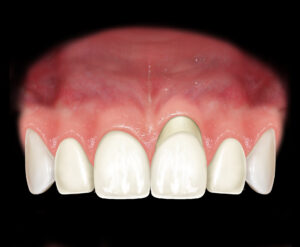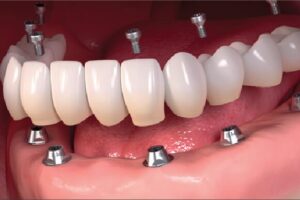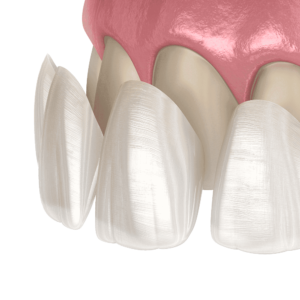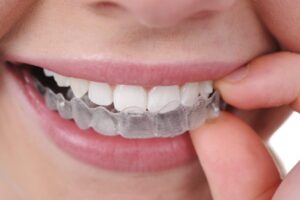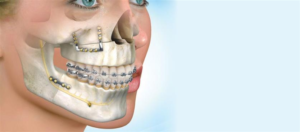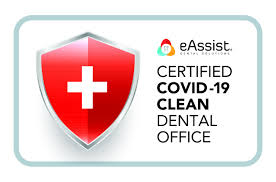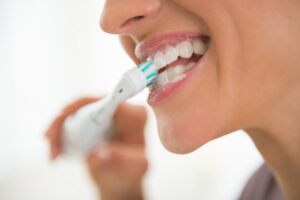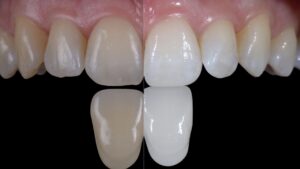
Dental implants are so valuable for you, they deserve all your care just as well as you would care for your natural teeth.

Dental implants require a time commitment and a dedicated oral hygiene routine for optimum maintenance. In addition, implants require a greater financial investment than other restorations.
Thorough oral hygiene is necessary to prevent diseases around the implants. With proper home care and regular professional maintenance, you can keep your new teeth throughout life.
What is peri-implant disease? Healthy gums have normal pink color and do not bleed or hurt when you clean around your implants.

If your gums become sensitive and even bleed when you clean around your implants, then you may be have Peri-implant mucositis (Peri-implant mucositis) which means that there is an inflammation in the gums around the implants. This disease causes redness and swelling, but is not always.

If you do not clean them properly, Bacterial plaque sticks on your teeth and implants especially along the gumline, and can cause gum inflammation, If the plaque is not removed it continues to grow in the sulcus gum line, where it is impossible to reach with a toothbrush or interdental brush. The plaque hardens into tartar which has a rough surface that attracts more plaque. In time, the bone around the implant will start to break down, meaning that the implant gradually loses its attachment. The peri-implant mucositis has developed into peri-implantitis.

Peri-Implantitis often goes unnoticed and without pain. It is important to get professional treatment to stop the process. Without treatment, the bone loss will continue and the implant may eventually lose its bone support. Factors like poor oral hygiene, previous tooth loss and smoking heighten the risk of peri-implantitis.
Recommendations for maintaining your implants
- Avoid sticky foods like caramels, gum and taffy, and crunchy foods like hard candy, and never chew ice cubes. With your new implants you can eat normally now, rich fiber containing food is your best choice.

- Thorough brushing after meals with soft nylon brushes. Special designed brushes for cleaning the outside of the implant surface as well as the interdental surfaces around implants are available in the market. Change your brush regularly.
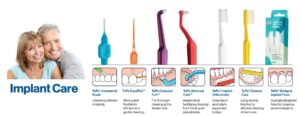
 .
. 
 . .
. . 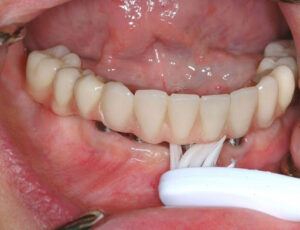
- Flossing with dental floss is highly important as this will clean the areas that are not reached by the brushes.


- Use mouth washes after meals with oral antiseptic rinses, as this will eliminate the bacteria in the mouth.
- Using Water jet device before sleep after brushing and flossing will do extra cleaning and acts as a massage to your gums that will enhance better blood circulation and keep the collagen fibers.
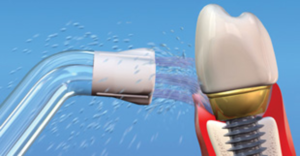

- Visit your dentist for regularly scheduled appointments, as early detection of minor problems will avoid future extensive complicated treatment and prevent loosing your implant.
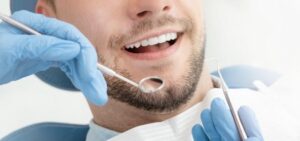 .
. 
Your dentist did his great job, so you do yours, and make your implants last for life.


